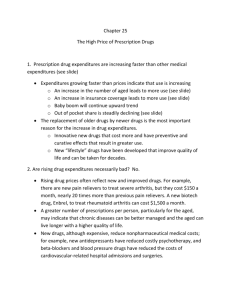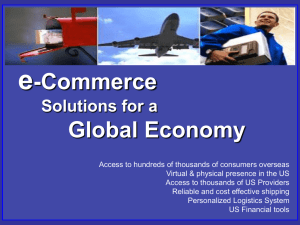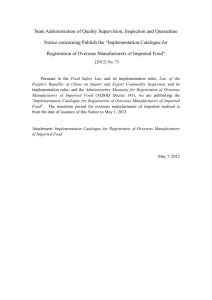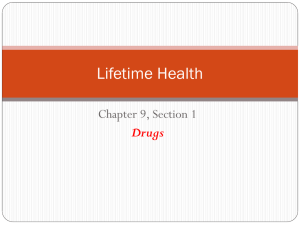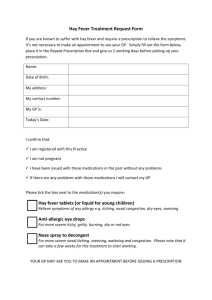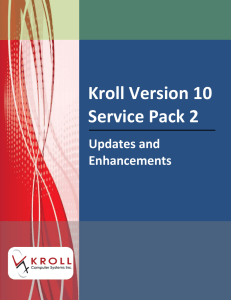patients drugs
advertisement
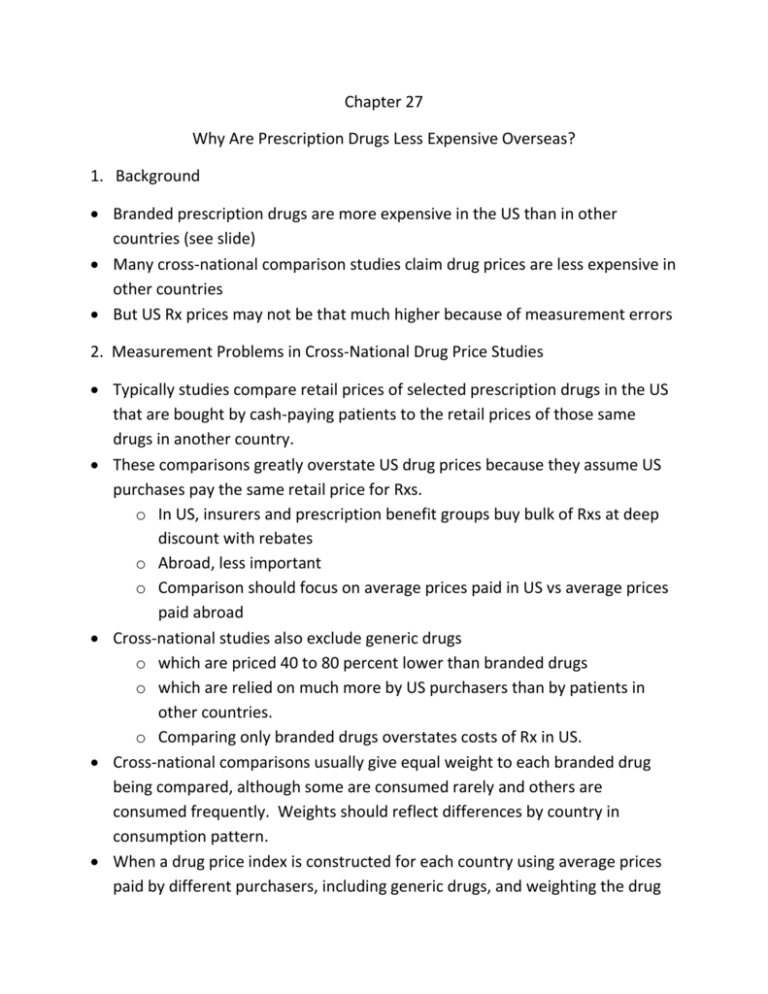
Chapter 27 Why Are Prescription Drugs Less Expensive Overseas? 1. Background Branded prescription drugs are more expensive in the US than in other countries (see slide) Many cross-national comparison studies claim drug prices are less expensive in other countries But US Rx prices may not be that much higher because of measurement errors 2. Measurement Problems in Cross-National Drug Price Studies Typically studies compare retail prices of selected prescription drugs in the US that are bought by cash-paying patients to the retail prices of those same drugs in another country. These comparisons greatly overstate US drug prices because they assume US purchases pay the same retail price for Rxs. o In US, insurers and prescription benefit groups buy bulk of Rxs at deep discount with rebates o Abroad, less important o Comparison should focus on average prices paid in US vs average prices paid abroad Cross-national studies also exclude generic drugs o which are priced 40 to 80 percent lower than branded drugs o which are relied on much more by US purchasers than by patients in other countries. o Comparing only branded drugs overstates costs of Rx in US. Cross-national comparisons usually give equal weight to each branded drug being compared, although some are consumed rarely and others are consumed frequently. Weights should reflect differences by country in consumption pattern. When a drug price index is constructed for each country using average prices paid by different purchasers, including generic drugs, and weighting the drug prices by the frequency of their use, research suggests that the costs of drug therapies in the US and abroad are pretty similar (Danzon & Chao 2000) 3. Why would a drug manufacturer be willing to sell a drug that is priced high (in relation to its variable costs) in the United States at a low price overseas? Because price discrimination increases company profits and better enables the company to recoup R&D costs (& FDA approval costs). o Fixed costs can run to hundreds of millions of dollars o Actual production cost (i.e., Marginal Cost) is relatively low once chemical entities have been determined and FDA approval is received. o Patented drugs are characterized by very large fixed costs and relatively small variable costs (the actual costs of producing the drug). As long as Total Revenue in another country exceeds Total Variable Costs, company will be willing to supply drug o Hence countries with strong price controls will still be supplied drug o Must be able to prevent reselling o As long as TR > TVC, firm will profit by supplying. People in the United States have more inelastic demand, on average, than other countries o They’re wealthier o They want access to innovative drugs as soon as possible o They have insurance to pay for the drugs (private & public). 80% of Rx spending in US is by insurance o Countries that regulate Rx prices are much more price sensitive 4. Should US legislate that manufacturers have to charge a single price for the US and foreign markets? o Manufacturers would have to determine which single price would result in the greatest amount of profit. o US is largest single market for innovative braded drugs (see slide) o US consumers are less price sensitive o Reducing the price below US levels would decrease total revenue, which would decrease profits o Hence single price would most likely be very close to current US levels. o Raising foreign prices to US levels would decrease access to US drugs in foreign countries because they typically have limited budgets for purchasing Rxs. 5. Should reimportation of US Rx drugs be allowed to decrease US Rx drug prices? o Unlikely to reduce US Rx drug prices because o US manufacturers won’t sell large quantities to other countries at reduced prices if they’re then sold back to US pharmacies. o FDA has decided to restrict overseas mail order sales to US patients because of safety reasons. 6. How can we aid cash-paying patients in the US? Provide a voucher to lowincome patients to purchase health plan that includes Rx drug benefit. o MCO plan would obtain discounts, establish formulary, substitute generics when appropriate, and manage Rx treatment to reduce the total cost of drug therapy. 7. What are some of the consequences of regulated lower drug prices in overseas countries? Unintended side effects include: o The introduction of cost-effective drugs have been delayed o Surgical and hospital expenditures have been greater than if costly innovative new drugs were used. o Delays have occurred in approving costly life-saving drugs. o Total drug expenditures represent a higher portion of total medical expenditures in overseas countries than in the United States because low prices (for older Rxs) give little incentive for patients and MDs to use fewer drugs (see slide)
